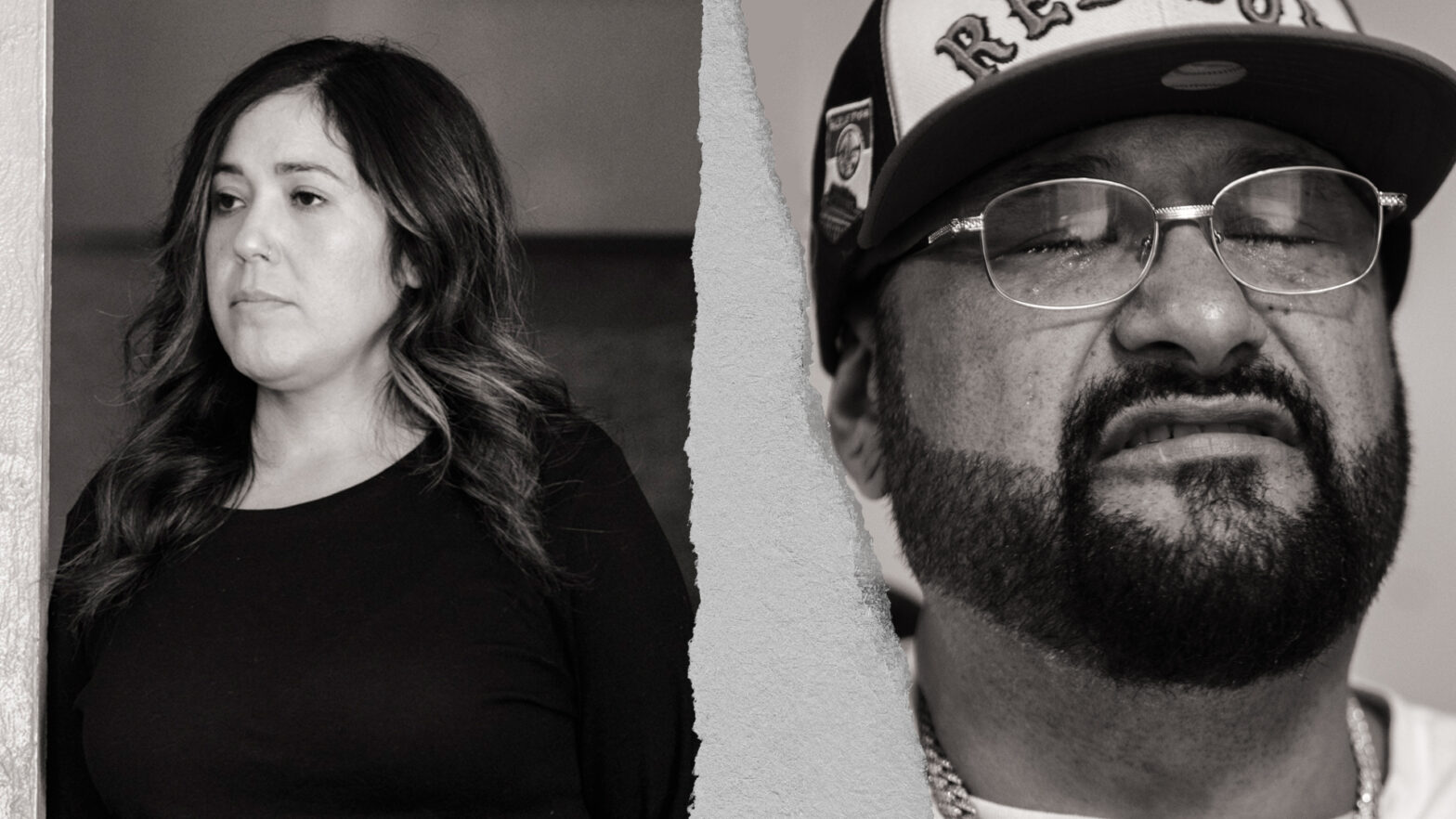By Joshua Bowling/ Searchlight New Mexico
THE PRELUDE
On a warm Saturday in October 2020, Chris Hulliger glimpsed something shiny under his wife’s broken-down Honda Pilot. He bent down in his Albuquerque driveway and came up with a handgun — a 9mm Glock. His wife, Vanessa, had no doubt to whom it belonged: her oldest son, 17-year-old Noah Duran.
There had been many months of troubling behavior. Noah’s grades at La Cueva High School had slipped dramatically. He’d lost his starting position on the high school football team. And when he went out with his new friends, he often didn’t return until the early hours of the morning. Vanessa suspected he was buying drugs. This was the last straw. Maybe, she told herself, a serious run-in with the law would set him straight.
She immediately called Albuquerque police. When the two officers arrived, they handcuffed the boy and seized the gun. Noah remained calm and refused to say anything, according to the police report.
Everything would hinge on what happened, and what didn’t happen, next. The police didn’t take him in. His family didn’t take his phone away. He was disarmed, but he wouldn’t be for long. He would go out and buy yet another, bigger gun, and upend the lives of dozens of people forever. Every day across the nation, people like Noah Duran get their hands on powerful weapons and derail the lives of the people around them. When the dust settles and the bodies are buried, countless others — survivors, family members, friends — are left to pick up the pieces.
Unable to find anything to charge Noah with, police unlocked his handcuffs. It would be another month before detectives ran the gun through their system and discovered it had been used in a nonfatal drive-by shooting just days before Hulliger called them.
By then, Noah would stand accused of shooting and killing 22-year-old Elijah Mirabal in a drug deal turned shootout. This time, Noah was armed with a semi-automatic “blackout rifle” similar to those used by U.S. Army Rangers, purchased on Snapchat, according to his mother. Prosecutors allege that Noah and his 18-year-old friend Jaden Sandoval lured him there like “a spider to a fly.”
Today, Hulliger puzzles over everything she might have done differently. “I couldn’t believe that my son was capable of something like this,” she said, adding that he became “a different kid” during the pandemic.
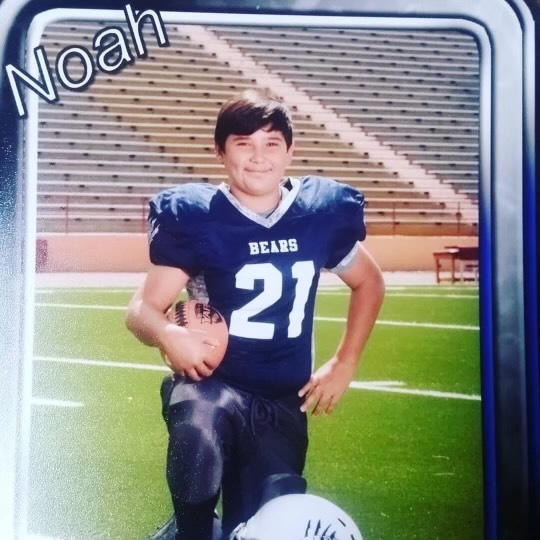
In recent years, youth gun violence has hit a boiling point. In 2022, Albuquerque logged a record 121 homicides; 15 percent of the suspects in those cases — a total of 14 — were minors. Although current figures are not yet available, the Bernalillo County District Attorney’s Office has already logged 120 juvenile criminal cases this year — 35 of which involve gun crimes. Of those, 13 children between the ages of 10 and 17 currently face murder charges, according to the DA’s office.
According to a September report from the New Mexico Department of Health, nearly 40 percent of households in the state own a firearm. Fifteen percent of households with a child, nearly one in seven, have a firearm that is loaded and unlocked, the report found.
The increased shooting deaths in New Mexico come at a time when Americans have bought guns like never before, many for the first time. An estimated 7.5 million Americans bought their first gun between January 2019 and April 2021, according to the National Library of Medicine. By some counts, Americans have bought more than 60 million guns since the Covid-19 pandemic began.
These figures are derived from background checks and only reflect legitimate gun purchases made through retailers. They say nothing of under-the-table private deals like Noah’s.
Gunshot wounds are the leading cause of death for children and adolescents in the United States. In New Mexico this year, several children have been killed in high-profile shootings. This summer, a 5-year-old girl was killed in a drive-by shooting allegedly carried out by five teenagers in southwest Albuquerque, according to police. A month later, an 11-year-old boy was shot to death outside Albuquerque’s Isotopes ballpark.
Gov. Michelle Lujan Grisham cited both shootings in September when she signed a controversial public health order prohibiting carrying guns in public in the Albuquerque area.
“The time for standard measures has passed,” she said. “We must hold each other to a higher standard for the sake of our children.”
But critics, experts and juvenile justice advocates say that legislation and government orders will do little to curb a social media marketplace where young people can find military-grade munitions with the tap of a finger.
“Laws can’t fix this,” said Miranda Viscoli, co-president of New Mexicans to Prevent Gun Violence. She believes kids need to hear the dangers of gun violence before they even reach high school. To fix this, Viscoli said, “We need to work with youth directly.”
Her nonprofit often brings trauma surgeons and shooting survivors into New Mexico schools to educate children about the perils of using these weapons. Still, bad actors will continue to buy guns illegally, she said. For Albuquerque youth, illegal guns are easy to get your hands on if you have a couple hundred dollars in cash.
Indeed, illicit gun sales have been a persistent problem for social media companies. Facebook has seen users turn to its Marketplace digital storefront to sell and trade firearms. In 2016, the site banned private gun sales on its platform, but in recent years, users have been able to flout its restrictions simply by listing guns for sale as gun cases or “boxes.”
“You literally get on Snapchat, and you say, ‘I want to buy a gun,’ and you will get a million people trying to sell you their guns,” said Vanessa Hulliger.
THE SHOOTING
It was just after 9 p.m. on Oct. 29, 2020, when Albuquerque police received a 911 call saying there was a shooting at North Domingo Baca Park, a large park surrounded by quiet, upper-middle-class neighborhoods, half-million-dollar homes and sprawling shopping centers.
Elijah Mirabal, 22, was at the park to sell drugs to a customer who, according to police, had reached out over Snapchat. He was far from his home in Ventana Ranch, and he’d also come fully armed. As he was approached by Noah and Jaden Sandoval, Elijah held up a bag of cocaine, police said. Noah and Jaden allegedly leveled their weapons at him and told him this was a stick-up. A firefight ensued.
Police found a handgun with a mounted light in Elijah’s car, and it “appeared to have been shot to lock back or jammed” — indicating that he either fired all of his ammunition or that the gun malfunctioned and cost him his life.
Elijah died from a shot to the head, but not before shooting Noah four times. According to his mother, surgeons had to remove portions of his intestines. Noah only survived, his attorney argued in the subsequent trial, because Elijah’s gun jammed.
Like Noah, Elijah had also changed during the pandemic. His father, Thetus “TW” Mirabal, described his son as a no-nonsense lineman on the Cibola High School football team. Everyone in the family looked up to Elijah — all 6’2” and 265 pounds of him — and if they didn’t know where he was on a given night, they assumed he was fishing by the river or chipping away at his artwork.
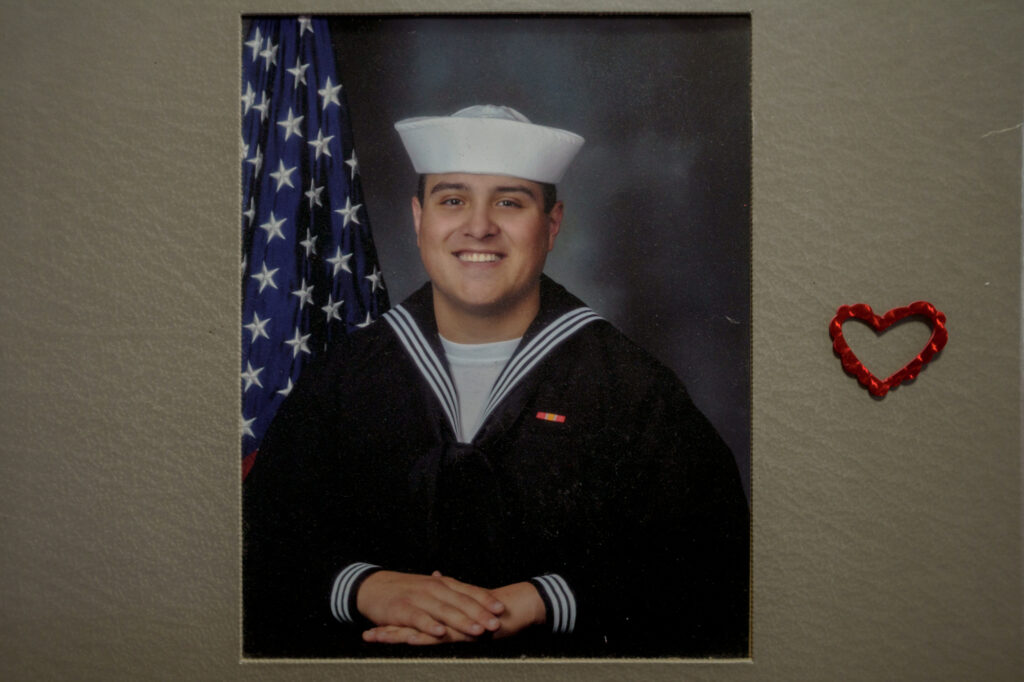
At 22, he’d returned home to Albuquerque after obtaining an honorable discharge in the U.S. Navy, where he gained recognition as a sharpshooter. His best friend, according to his dad, was his grandfather, who had passed down a rigorous work ethic. He soon got a job with a furniture warehouse in town and started paying off his new car, a shiny silver Infiniti sedan.
But as the pandemic lockdowns strained the economy, he was laid off like millions of other Americans. That’s when the drug dealing started.
“It tears you up,” Mirabal said. “I know that my boy wasn’t supposed to be doing that. He didn’t have an excuse. But it never should have happened like this.”
Similar thoughts flood Hulliger’s mind. On a recent September morning, the one-year anniversary of her son’s sentencing, she fought back tears as she pulled out a four-page, handwritten letter he sent to the Second Judicial District Court judge presiding over his case.
“People are so quick to treat me like I am less than human. They call me a monster, but I am just a kid who made a lot of stupid mistakes that led me to make the worst decision of my life,” he wrote. “I loathe myself on a daily basis. I see kids in here who have nothing, who were set up to fail from the beginning and then there is me who had every opportunity in the world and threw it all away.”
The judge sentenced him to 29 years in prison. His friend, Jaden, awaits sentencing.
EPILOGUE
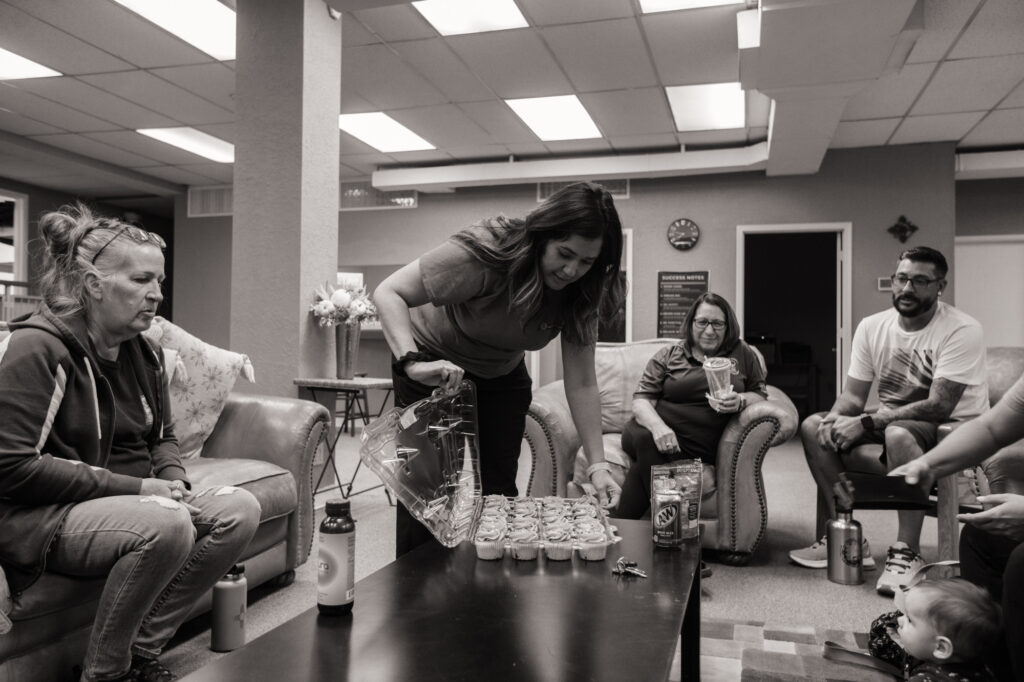
Vanessa Hulliger breaks open a box of cupcakes for the eight women sitting around a table in a downtown Albuquerque office. On this early October night, they’re holding a birthday celebration. But there is no singing and there are no candles.
The guest of honor sits 80 miles away, confined to a prison cell at Western New Mexico Correctional Facility. Noah Duran is turning 20 years old behind bars tonight and Hulliger, his mother, is determined to mark the occasion. It’s been just more than a year since she formed this support group of women, all joined together by the tragic fact that each of their teenage sons has either been charged with or convicted of murder.
Noah was convicted last year in the killing of Elijah Mirabal. The other boys have been similarly accused: One was recently convicted of killing a 19-year-old in a west Albuquerque park; another is awaiting trial for allegedly killing a 28-year-old woman in a case of mistaken identity.
Like Hulliger, the mothers all say they never allowed guns in the house — but that buying a handgun or an assault rifle was as simple for their boys as downloading an app.
Christian Marquez / Searchlight New Mexico
To these parents, there’s a terrible shame that comes with their sadness. They assume that to others, they exist only as the mothers of killers. “Sometimes when we go out, I’m very cautious who we’re around,” said Hulliger. “I’m like, ‘somebody knows.’ Can they see it?”
A November study in the journal Health Affairs found significant mental health impacts in the families of people who are involved in shootings. Survivors’ parents experienced about a 30 percent increase in psychiatric disorders, the report found. The increase was as much as five-fold for parents of someone killed in a shooting.
The families are left to navigate the aftermath of their sons’ crimes, which is why Hulliger, an OB/GYN nurse, formed this group in the first place. Few who’ve joined understand the complexities of navigating the legal system and many cannot afford a good attorney. So Hulliger has become the group’s de-facto legal expert, helping the women figure out how often they can visit their boys, how to request hearings before a judge and how to write to their detained sons.
Their sons, though, have largely gone silent. Even the teens with the biggest personalities are now subdued, morose and heavily medicated in the Bernalillo County Youth Services Center, their mothers say. New Mexico’s largest juvenile jail is an understaffed facility that routinely detains children in cells with no toilets or sinks, subjects them to strip searches and places them in what critics and former detainees have called “essentially” solitary confinement.
The siblings of these young inmates are also among the victims, the families say. Noah’s 10-year-old brother has spent hours trying to figure out how old he’ll be when his big brother gets out of prison in Grants. If his brother is lucky and gets an early release, he’ll be in his mid-20s and Noah will be in his early 30s.
On the far western outskirts of town, Elijah’s father, TW, also feels lost. How did his beloved boy — a formidable lineman on the football team, a baptized Christian and a U.S. Navy sharpshooter — sink so low that he was selling drugs and getting in shootouts? The night Elijah showed up for his rendezvous with Noah and 18-year-old Jaden, it was a roll of the dice over who would be shot and who would walk away.
Juvenile justice advocates argue that it’s critical to consider teenagers through a different lens than adults. Research shows their brains are not fully developed until they are about 25 years old. That makes them “more susceptible” to committing crimes, according to the Washington D.C.-based Coalition for Juvenile Justice. Even the U.S. Supreme Court agrees: In a landmark 2005 decision, the justices found that juveniles are less culpable than adults because they’re inherently more impulsive, reckless and vulnerable to peer pressure. Studies have also shown that locking kids up makes them less likely to finish high school and more likely to end up in prison as adults.
Mirabal acknowledges that his son was hardly blameless. After all, Noah almost died in their gunfight, having been shot four times. Even now, pain and gastrointestinal issues persist. But he refuses to define his son by his crimes.
“He shouldn’t have been doing that. I know that,” said Mirabal, who has turned his house into a shrine to Elijah, stringing his name in lights across the garage door and covering almost every wall with his photos. “But nobody is perfect. He made a bad decision doing what he was doing, and it wasn’t even that long. I think it was only for a couple of months.”
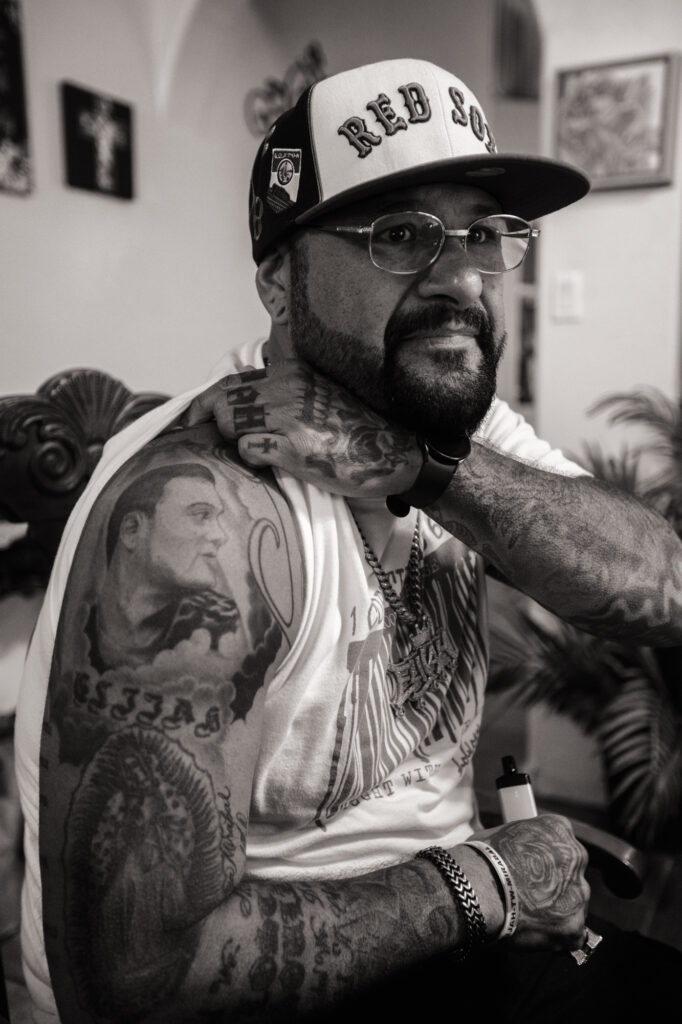
Many of the families in Hulliger’s group say their boys fell into bad crowds during the pandemic lockdowns, when schools closed and they had little to do. Now, they say prosecutors and judges are being especially hard on juvenile crimes, looking to make examples out of these kids by handing down lengthy convictions.
One 16-year-old awaiting sentencing in the Bernalillo County juvenile jail faces up to 80 years in prison for shooting and killing a 19-year-old and injuring three others last year in what started as an argument.
Another 16-year-old boy faces first-degree murder charges for his alleged role in a gas station shooting last year, when police say a group of teens aged 15 to 19 shot at a vehicle they wrongly believed was driven by two people who previously robbed them. A 28-year-old woman was killed.
In many cases, like that of Noah and Elijah, the pain of loss is almost interchangeable for families on both sides of the violence.
Losing his only son has been an isolating experience, Mirabal said. He’s felt pressure to “man up” and internalize his emotions. That’s only made his grief worse. “It seems that us dads are pushed aside. We’re told to be a man,” he recalled, openly weeping. “I am a man, but I miss my son.”
Hulliger often finds herself weeping, too.
“Their family will never see their child again,” she said. “And I potentially will have him home one day, but our lives are never going to be the same again. My children’s lives are never going to be the same again. My marriage is never going to be the same again.
“I sit there, and I cry, and I ask why all the time.”
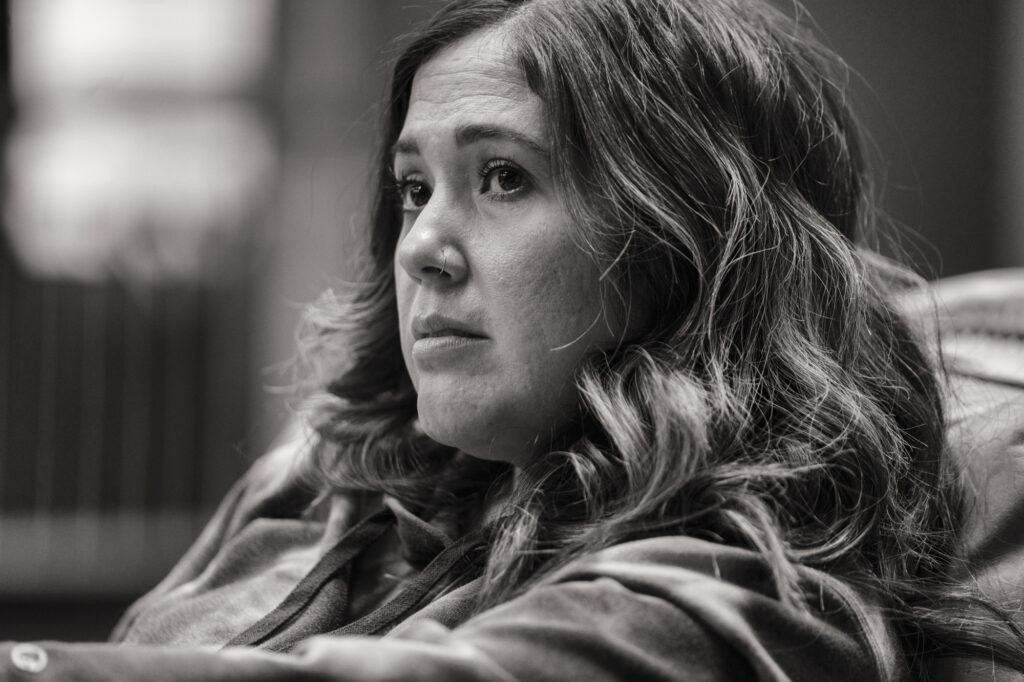
Joshua Bowling, Searchlight’s criminal justice reporter, spent nearly six years covering local government, the environment and other issues at the Arizona Republic. His accountability reporting exposed unsustainable growth, water scarcity, costly forest management and injustice in a historically Black community that was overrun by industrialization. Raised in the Southwest, he graduated from Arizona State University’s Walter Cronkite School of Journalism and Mass Communication.
Searchlight New Mexico is a nonpartisan, nonprofit news organization dedicated to investigative reporting in New Mexico.
